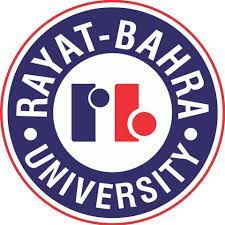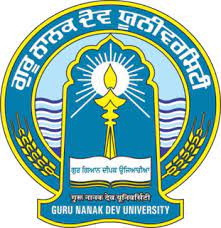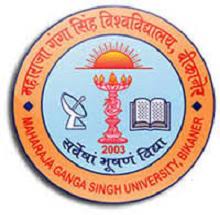The Ph.D. program in Brain and Cognitive Sciences at Brown University prepares students for professional positions in academic, applied, and government settings. Because the program is interdisciplinary, students will be able to pursue a wide variety of research topics. Moreover, they will learn how to integrate perspectives and methodologies from different fields to answer questions about human cognition and behavior. There are numerous courses and seminars available to the students.
A typical cognitive and brain science Ph.D. program will require the candidate to earn a baccalaureate degree or the equivalent. Candidates with a master's degree may apply up to 24 credits towards the doctoral degree. While an undergraduate major in psychology is not required, all coursework must include statistics and a laboratory course in experimental research. Graduate students can substitute a related discipline for the required courses. In addition, a student must be admitted to the program by a faculty member.
The program is structured to accommodate diverse interests in the field. Its flexibility allows students to explore a wide variety of topics while using the methods of different fields to study these issues. The coursework requirements are minimal and include a research stipend during the fourth summer of their program. A cognitive and brain science Ph.D. is also very competitive, so it is important to get in early on.
Ph.D. in Brain and Cognitive Sciences Eligibility
Candidates who want to take admission in Ph.D. must have a post-graduate degree in Brain and Cognitive Sciences and its relevant discipline with at least 55% marks from a recognized university and must have passed the national level entrance examination or university level entrance examination. National level entrance exams like UGC NET / UGC CSIR NET / GATE / SLET or University entrance exams consist of written tests and personal interviews.
The Benefits of a Ph.D. in Brain and Cognitive Sciences
Graduates of a Ph.D. program in Brain and Cognitive Sciences are well prepared for academic leadership positions, as well as for careers in education, government, and business. They also have the necessary knowledge and skills to become effective scholars and instructors and are prepared to take comprehensive exams. They are able to apply their knowledge and expertise in many different areas, from neuroscience to educational technology.
Students who wish to pursue a career in this field may be interested in research and teaching. Those with a background in psychology can benefit from the rich intellectual climate of the BBS. The university has six centers that regularly sponsor symposia and workshops, and the faculty frequently present their work in professional organizations. Moreover, doctoral students in cognitive and brain sciences are provided with funding support for professional meetings and dissertation research. Finally, they can develop their teaching skills through a number of opportunities and resources.
The BBS department is home to three doctoral programs, including the Cognitive and Brain Sciences Program. The other two programs are Clinical and Behavior Analysis and Applied Cognitive and Biological Psychology. In addition to the cognitive and brain sciences track, the department also hosts an interdisciplinary social psychology program. Additionally, the BBS program has close working ties with other departments on campus, including computer science, electrical and biomedical engineering, and other fields.
The Career and Job Opportunities of a Ph.D. in Brain and Cognitive Sciences
Upon graduation, a Ph.D. in Brain and Cognitive Sciences can lead to a variety of career opportunities. Graduates may choose to become researchers, professors, or educators, but the degree is also a strong foundation for a future career in any discipline. While you should consider the specific field you'd like to pursue, this degree will help you find your niche in the industry.
The Ph.D. in Brain and Cognitive Sciences provides students with the training they need to pursue a career in academics or applied research. Because the field is interdisciplinary, graduate students will be well-suited for interdisciplinary work. A Ph.D. in this field provides you with extensive research experience in a variety of fields and teaches you the skills to communicate effectively and reflect on your own work.
A Ph.D. in Brain and Cognitive Sciences will equip graduates with interdisciplinary research and the skills to conduct interdisciplinary research. They are particularly suited for careers in interdisciplinary areas such as neuroscience, and their experience in conducting interdisciplinary research has given them the confidence and skill to collaborate with other experts. Additionally, you'll develop skills in teamwork, communication, reflection, and learning.
The Future Scope of a Ph.D. in Brain and Cognitive Sciences
The field of cognitive neuroscience combines a wide range of disciplines and is rapidly gaining importance in modern society. In the last two decades, noninvasive functional brain imaging has become an important research focus. The integration of cognitive and neural models of information processing is another major focus area. Students seeking to specialize in cognitive neuroscience are expected to come from various undergraduate backgrounds. The department's admission requirements include courses in biology, psychology, and mathematics.
The field of cognitive sciences is constantly evolving as techniques and knowledge are developed and applied. Novel advances in the converging fields of computer science and neuroscience are improving the quality of life. They may help us improve our mental faculties or create a brain-machine interface. Medical science and neuropsychiatric research depend on a complete image of the human brain. Ultimately, the study of the brain and cognition is crucial for the better treatment of neurologic diseases, brain damage, and disorders.
While many areas of research are becoming more advanced in recent years, there is still a wide scope for those who have completed a Ph.D. in this field. The program at Drexel University is highly regarded in the field and trains the next generation of brain scientists in the basics of cognitive science. The CogNew Lab investigates engineering and cognitive notions of control in the brain. This research focuses on human and animal populations. The program also aims to understand public perceptions of cognitive optimization.
Ph.D. Research Programme duration
The Ph.D. in Brain and Cognitive Sciences course is a minimum of 3 years and a maximum of 5 duration. This depends on the university offering the course.
Fees for research program for Brain and Cognitive Sciences
The average fee for Ph.D. in Brain and Cognitive Sciences degree is between INR 50000 and INR 500000.
 5 Years
5 Years
 PhD
PhD
 Research
Research

































 back
back